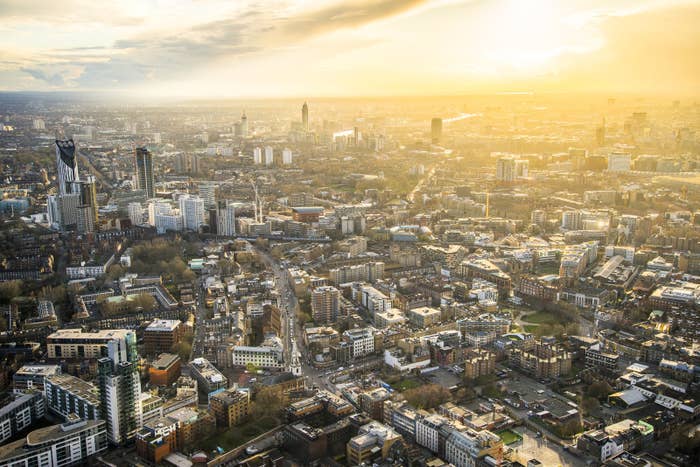
London won’t be allowed to bid for the £220 million clean air fund announced in the budget, mayor of London Sadiq Khan said on Thursday at an inquiry into improving air quality.
“We’ve been told overnight London can’t bid for that,” said Khan.
A spokesperson for the Treasury confirmed this is because London has its own devolved settlement. “The point of the clean air fund is to help local authorities who don’t have an arrangement get access to money,” she said.
But the mayor's office hit back in a statement to BuzzFeed News saying that none of the money in the devolved settlement was set aside for clean air.
A spokesperson for the mayor said: "It is both false and misleading for the government to claim that London has received £5 billion for air quality improvements. The TFL [Transport for London] settlement they refer to is funding for the entire London transport and road network, tube line upgrades, and major infrastructure projects like Crossrail. No extra funding was provided by government to help deliver key air quality improvements like the T-charge.
"Londoners now face a triple whammy: breathing in some of the most toxic air in the country, receiving no new government help, and still having to help pick up the bill. This is yet another case of the government burying their head in the sand and jeopardising the health of Londoners."
Chancellor Philip Hammond announced the fund in Wednesday's Budget speech and said it was intended to support local authorities as they implement air quality plans.
The size of London, combined with its traffic and tall buildings that trap pollution, makes the city one of the most polluted places in the UK. Each January several roads in London breach annual air pollution limits just days into the year.
"There are 40% of the most polluting roads [in the UK] in London," Khan told MPs at the inquiry.
The mayor also said he had been lobbying the government for the last year for a £515 million, two-year diesel scrappage scheme that would help Londoners trade in the most polluting diesel vehicles.
"Around 130,000 vehicles would benefit, and 70,000 vans from small businesses," he said. "For a car there would be about a £2,000 contribution, for vans £2,500, and for black taxis £1,000 to get rid of the most polluting vehicles."
He added: "It doesn't make sense for the government to have a clean air fund, which includes the possibility of a diesel scrappage scheme, and not apply it to London."
Chancellor announces a new £220m Clean Air Fund to provide support to local authorities as they draw up local air q… https://t.co/OFGmGrYt0W
The money in the clean air fund comes from an increase in vehicle excise duty for new diesel cars in their first year, also announced in the Budget, that has been criticised for not going far enough to tackle the most polluting vehicles.
Jonathan Grigg, a professor of paediatric respiratory and environmental medicine at Queen Mary University of London and founding member of Doctors Against Diesel, said the increase in vehicle excise duty was "not enough".
"This is, hopefully, the start of the process of making high-polluting diesels much more expensive to run than less-polluting vehicles," he told BuzzFeed News. "Omitting vans is rather disappointing since these tend to to do multiple journeys and therefore contribute more to people’s exposure to locally generated pollution."
Tim Chatterton, a senior research fellow in the Air Quality Management Resource Centre at the University of the West of England, told the Science Media Centre the impact of the rise was likely to be "minimal".
"For most diesel vehicles, the costs will be equivalent to less than 5% of a single year’s fuel costs," he said. "As roughly half of all new vehicle purchases are made by companies as opposed to private individuals, perceived per-mile costs are still likely to influence purchase more than a minimal increase in first-year VED."
